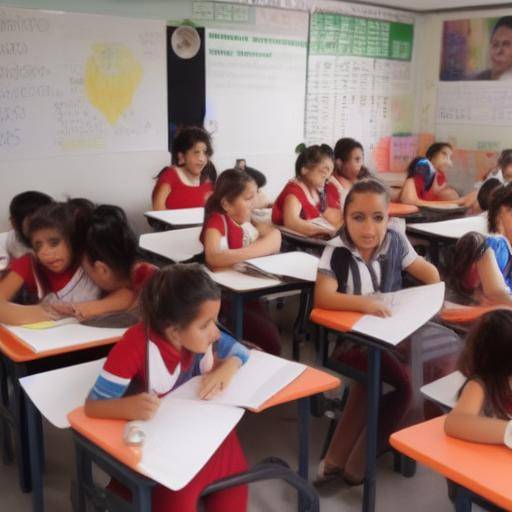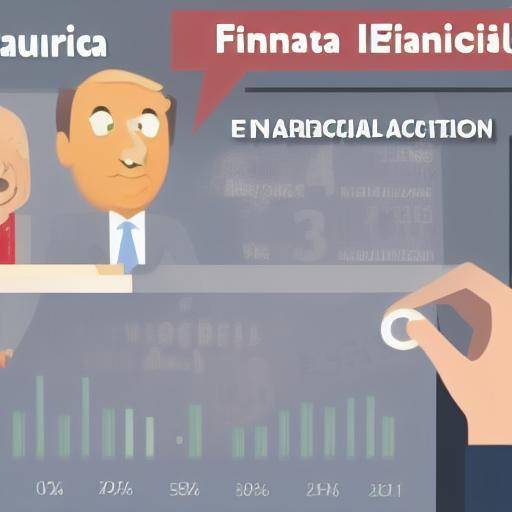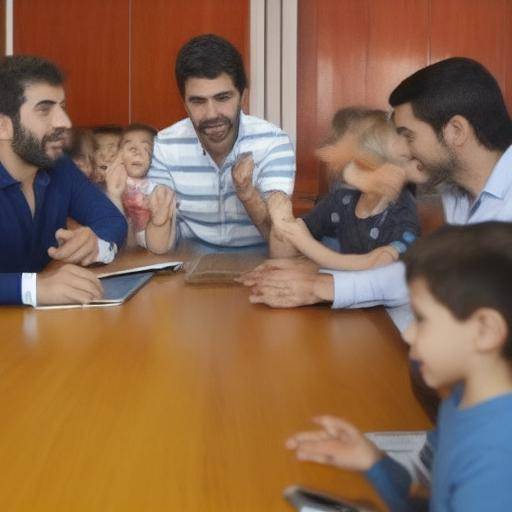
Childhood is a crucial stage in human development. During this phase, children absorb knowledge and habits that can significantly influence their future. In the current world, where economy and finance play a crucial role in everyday life, early-age financial education is presented as a determining factor for economic well-being and informed decision-making throughout life. In this article, we will explore in detail the benefits of financial education in children, its importance in the acquisition of knowledge and how it positively influences the future of individuals.
Importance of financial education in children
Financial education from an early age not only imparts knowledge about money management, but also inculcates key values such as informed responsibility, planning and decision-making. Children who acquire these knowledge and financial skills from young people have the opportunity to develop a healthier relationship with money as they grow. In addition, this education provides them with the necessary tools to face financial challenges more effectively in the future.
Short-term benefits
Financial education in children provides immediate benefits by fostering understanding of basic concepts of money, such as savings, budgeting and the distinction between needs and desires. These skills enable children to have a better understanding of the value of money, while fostering the development of planning and decision-making skills, which contributes positively to their personal development.
Long-term impact
As children who have received financial education from an early age grow, their ability to make responsible and well-informed financial decisions increases considerably. This early learning provides a solid basis for effectively surfing in more complex financial situations in adulthood, such as loan management, investment or retirement planning.
Positive influence in the future
The financial knowledge acquired in childhood has the potential to significantly shape the future of individuals. Strong financial skills not only influence personal economic stability, but also contribute to the construction of a more prosperous and resilient society as a whole.
Conclusion
In short, early-age financial education offers a wide range of short- and long-term benefits. By promoting a sound understanding of the financial principles from childhood, the foundations for informed decision-making and responsible management of resources in the future are laid. This early preparation not only benefits individuals in the personal, but also has a positive impact on society as a whole. Therefore, there is no doubt that early-age financial education is a vital investment in the future well-being and prosperity of future generations.
If you want to know more about this topic, contact us and we will be happy to provide you with additional information!
Frequently asked questions
What are the benefits of financial education in children?
Financial education in children provides significant benefits, such as the development of planning and decision-making skills, understanding the value of money, and the acquisition of skills to adequately manage financial resources.
Why is it important to inculcate financial knowledge from an early age?
Inculcating financial knowledge from an early age is crucial because it lays the foundation for children to develop a healthy and responsible relationship with money and acquire the tools necessary to face financial challenges in the future.
What impact does financial education have on the future of individuals?
Financial education in children has a significant impact on the future of individuals by providing them with a solid basis for making responsible and well-informed financial decisions throughout their lives. These knowledge allows them to handle complex financial situations, such as loans, investments and retirement planning, more effectively.
How can financial education in children positively influence society?
Financial education in children can positively influence society by fostering personal economic stability and ultimately contributing to the construction of a more prosperous and resilient society as a whole.
What are the fundamental financial skills that can be taught to children?
Some of the fundamental financial skills that can be taught to children include understanding of the value of money, budgeting, differentiation between needs and desires, and fostering savings as a habit.
What is the best way to teach financial education to children?
The best way to teach financial education to children is through practical activities, games and everyday examples that allow them to understand financial concepts in an accessible and fun way, adapted to their level of understanding.
What resources are available to facilitate financial education in children?
There are numerous resources available, such as illustrated books, table games, educational applications and school programmes specifically designed to teach children financial education in an entertaining and effective manner.
How can parents foster financial education at home?
Parents can foster financial education at home by promoting open dialogue on money management, involving children in daily financial decisions and providing opportunities to practice savings and planning.
With these frequent questions, we hope to have addressed your concerns about the importance of early-age financial education and its short- and long-term benefits.
The End






















































